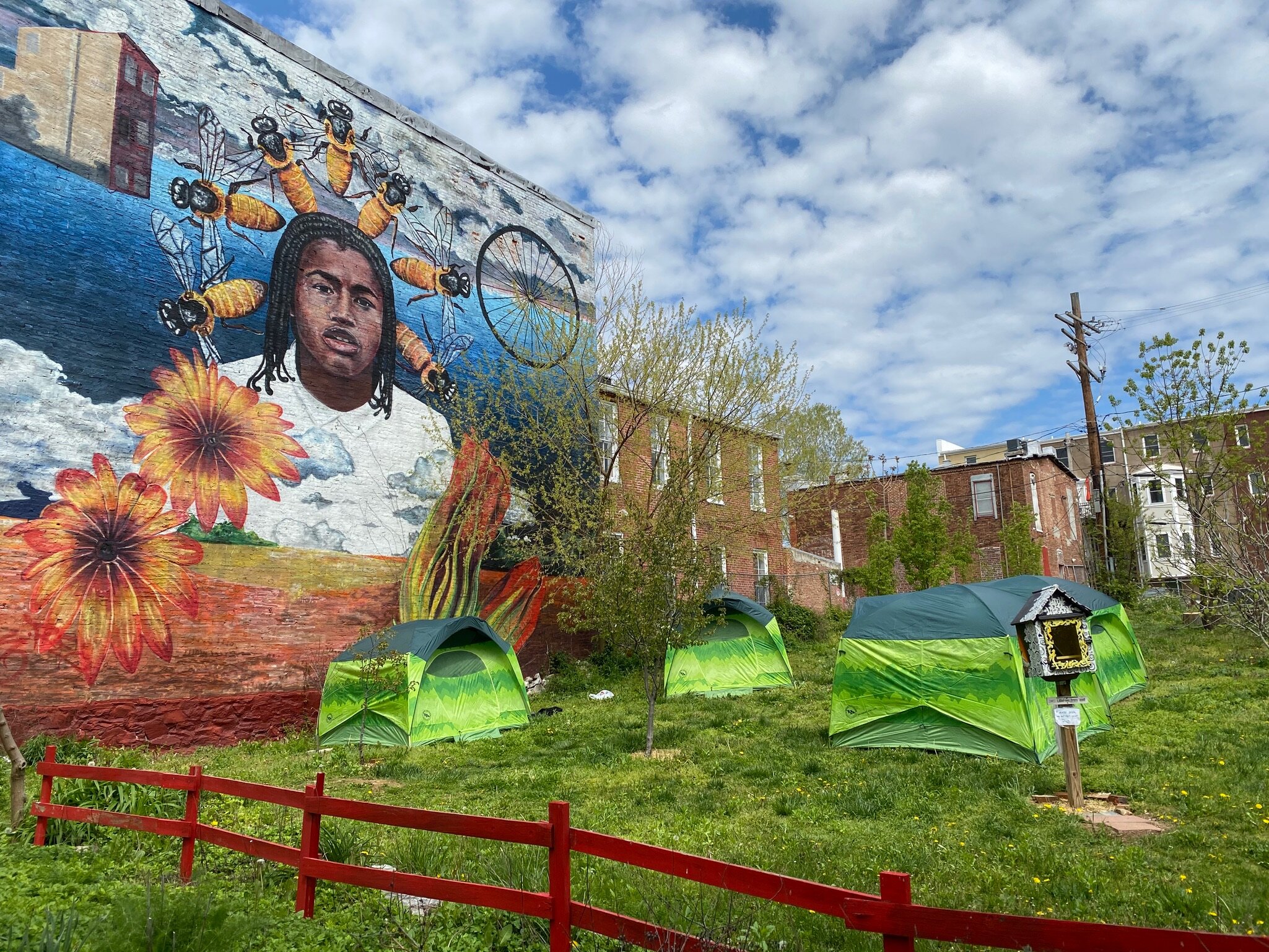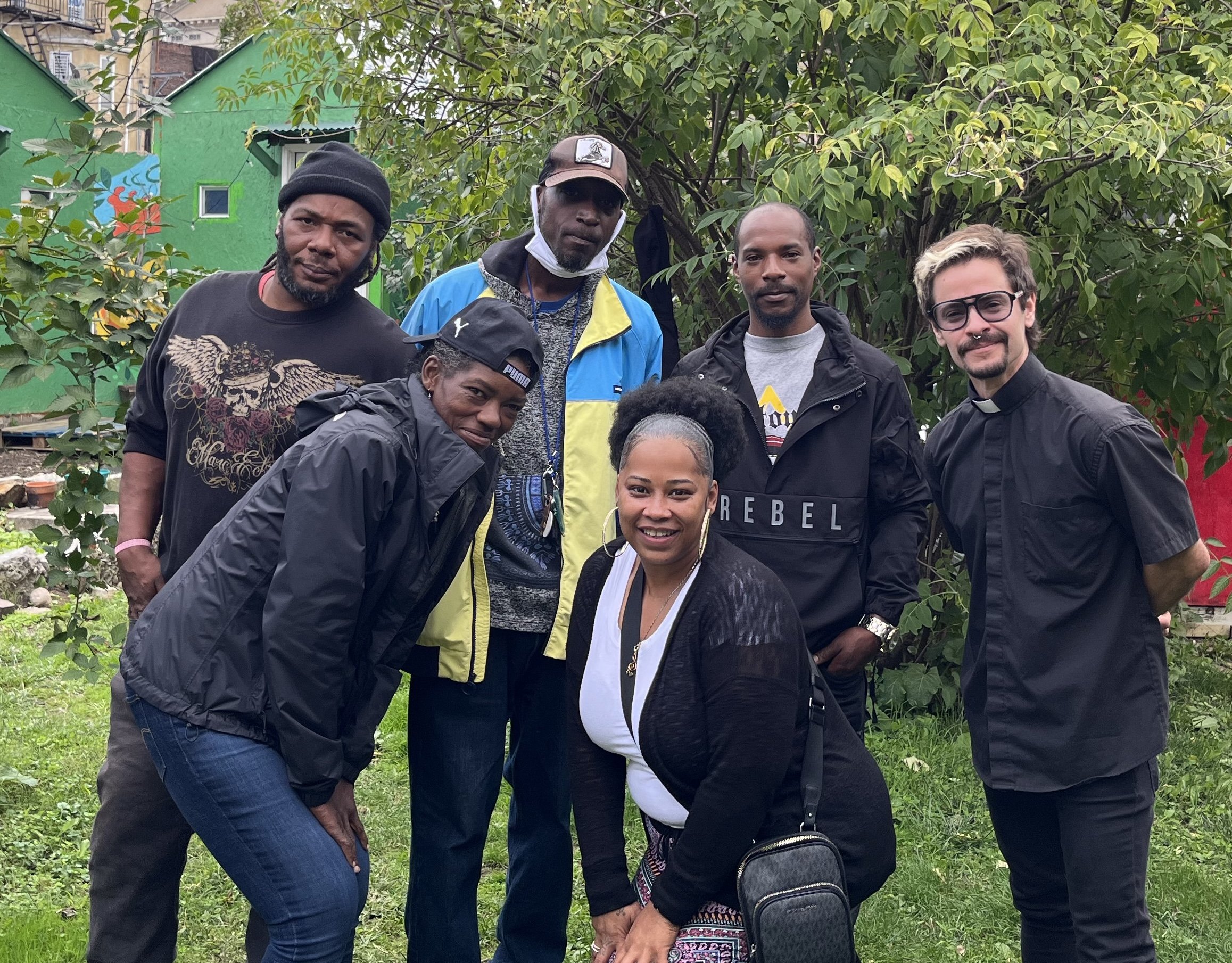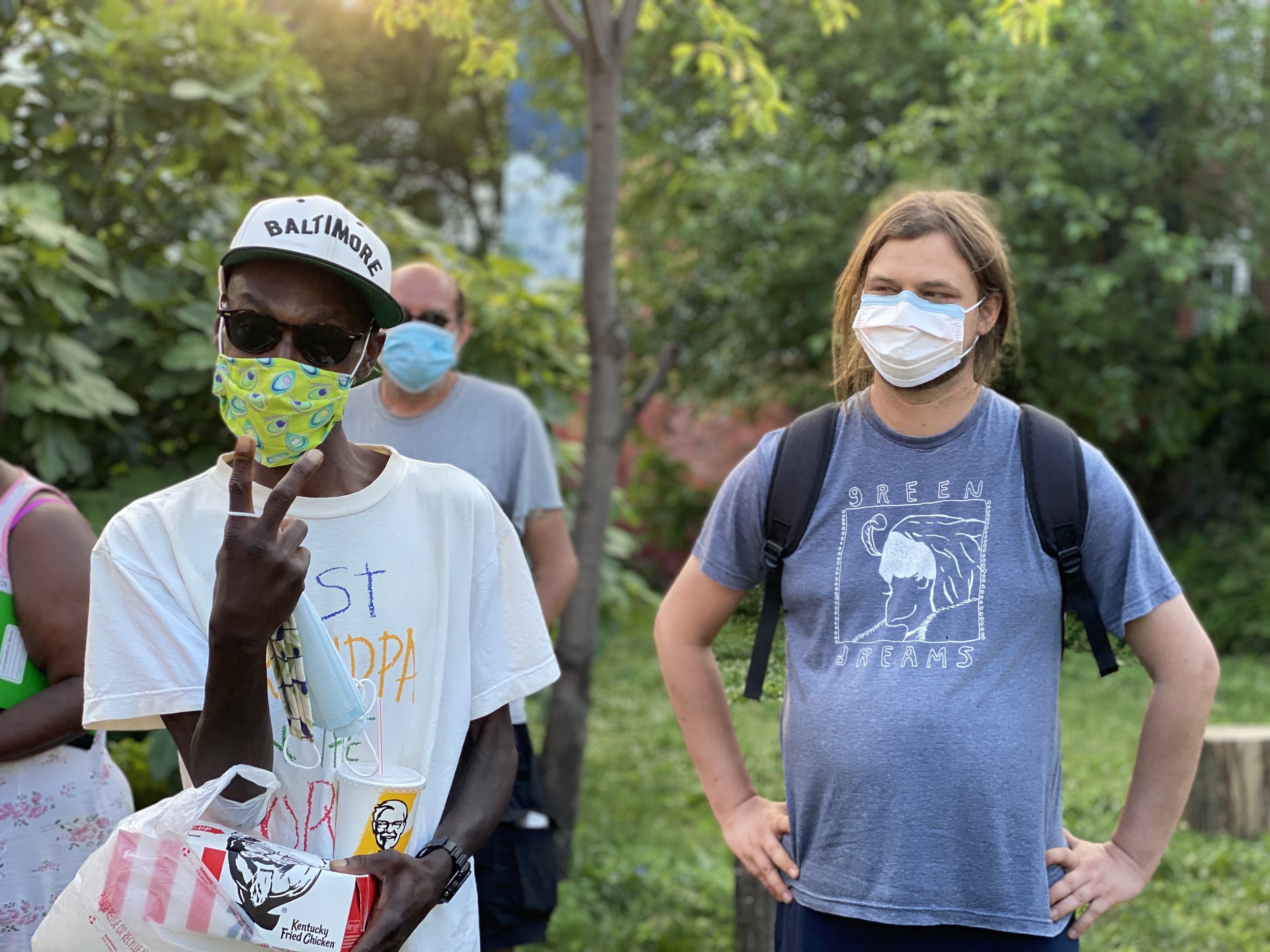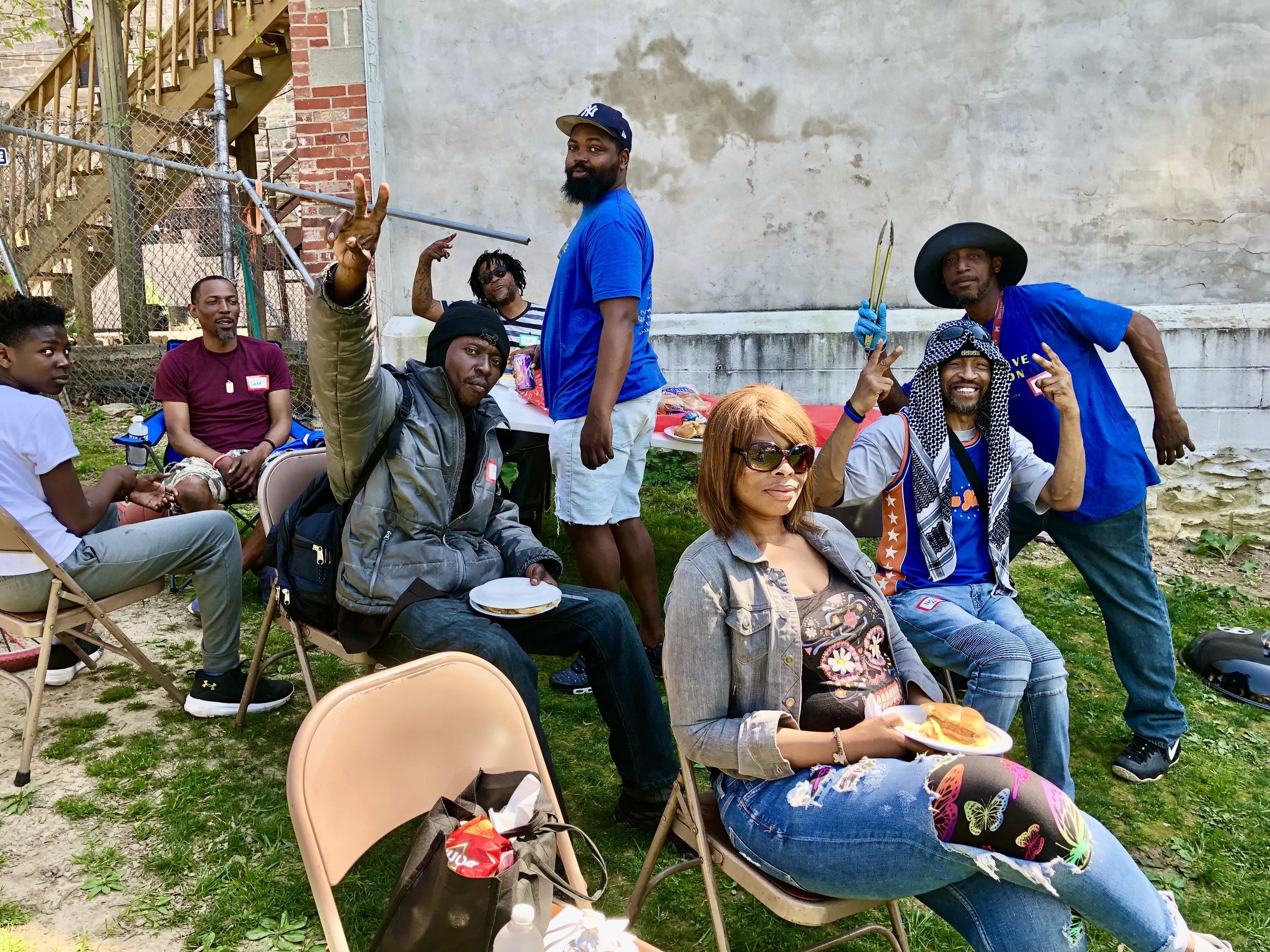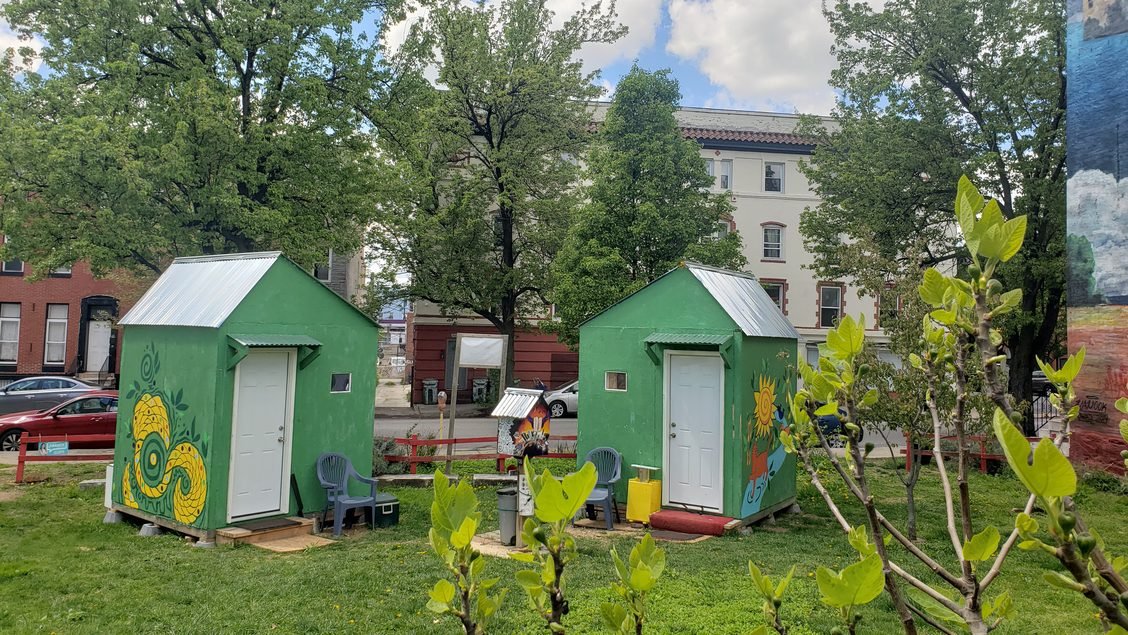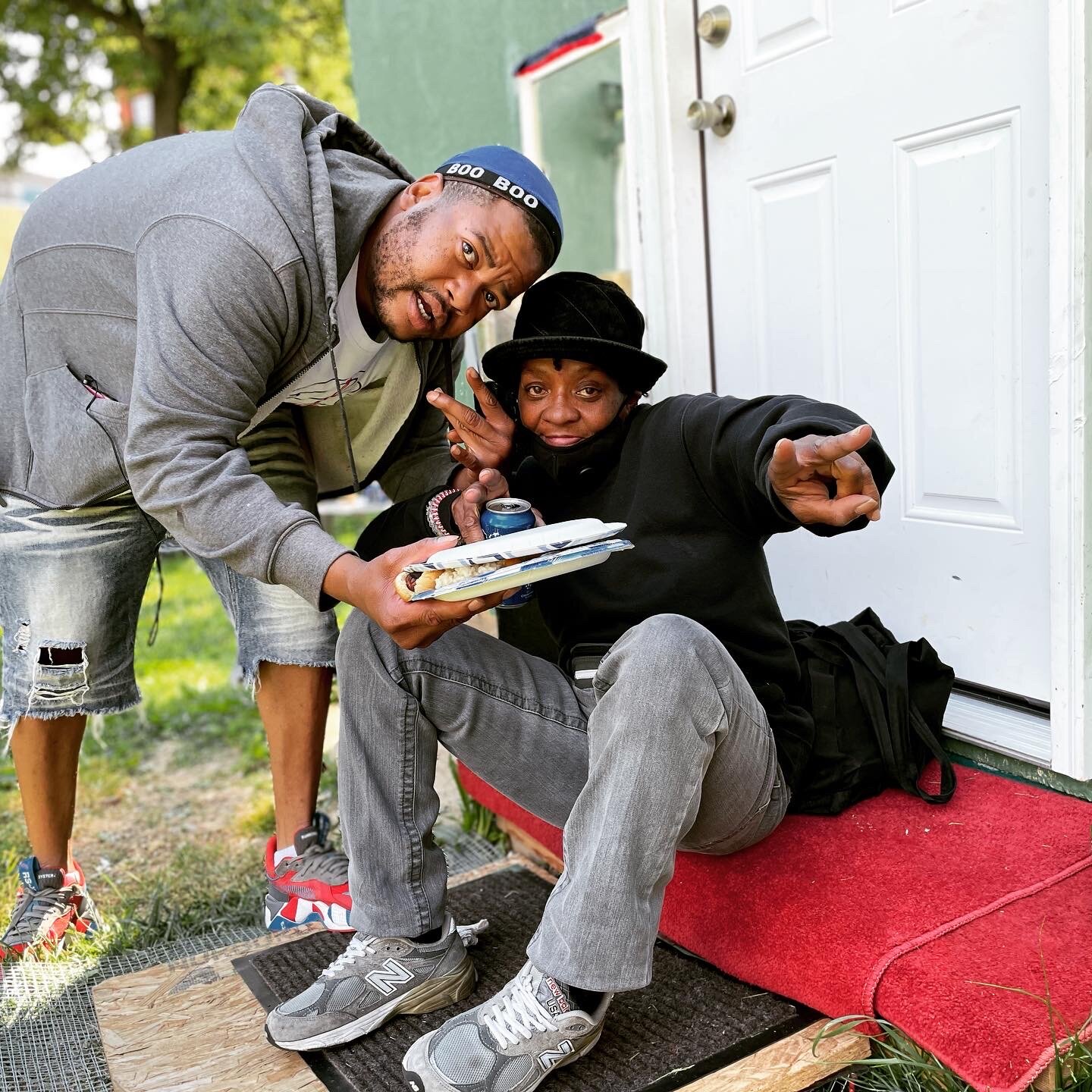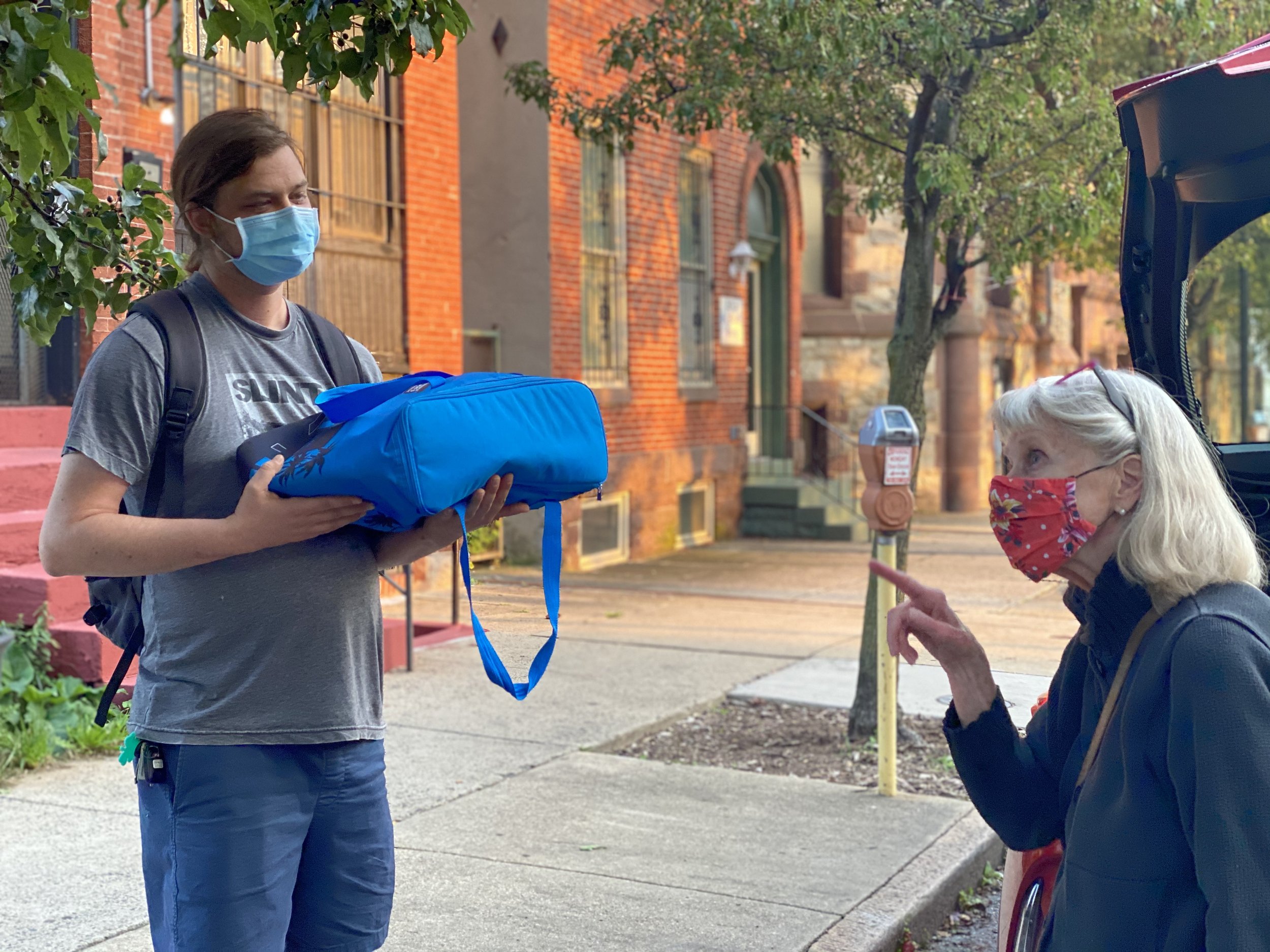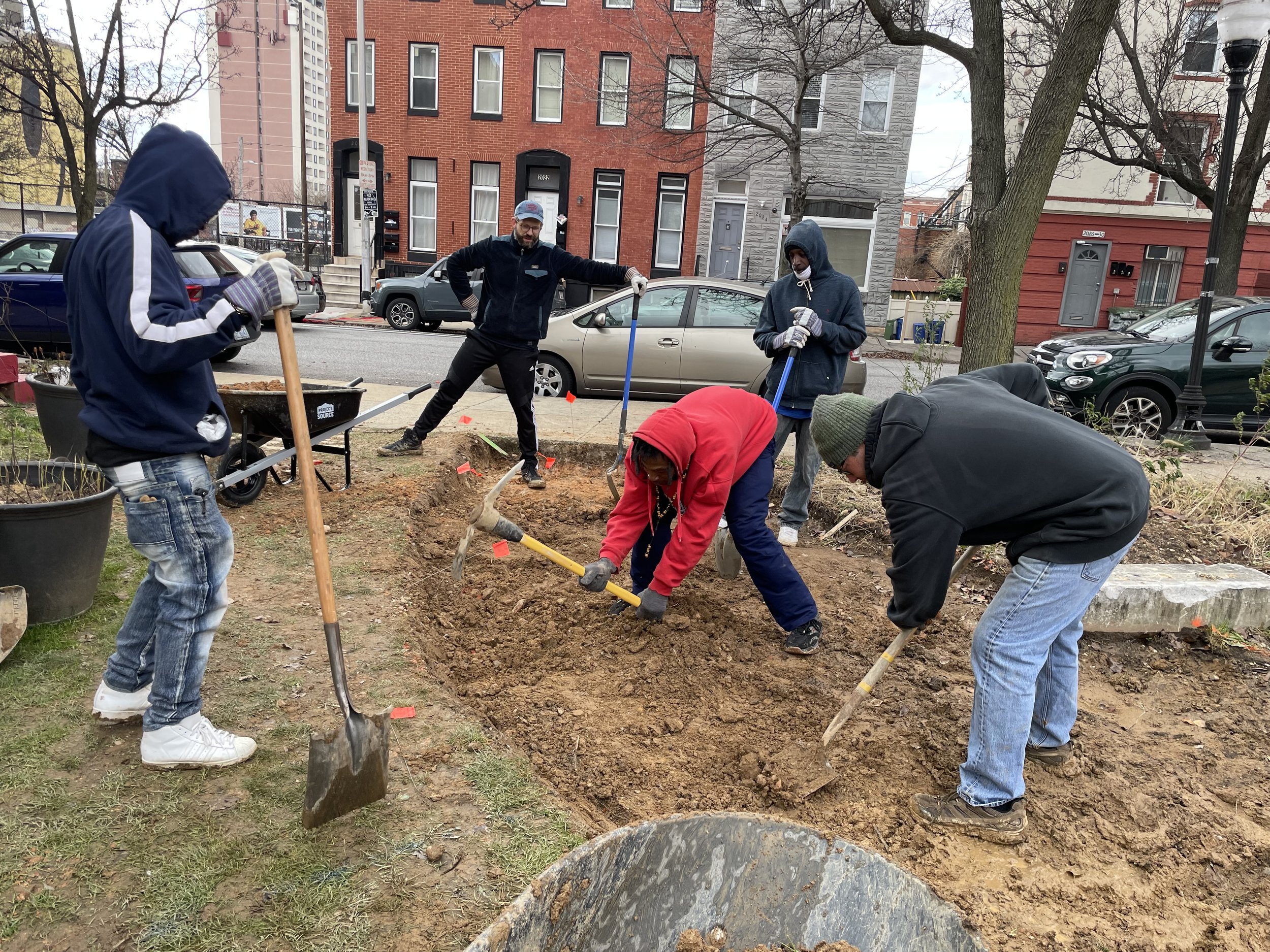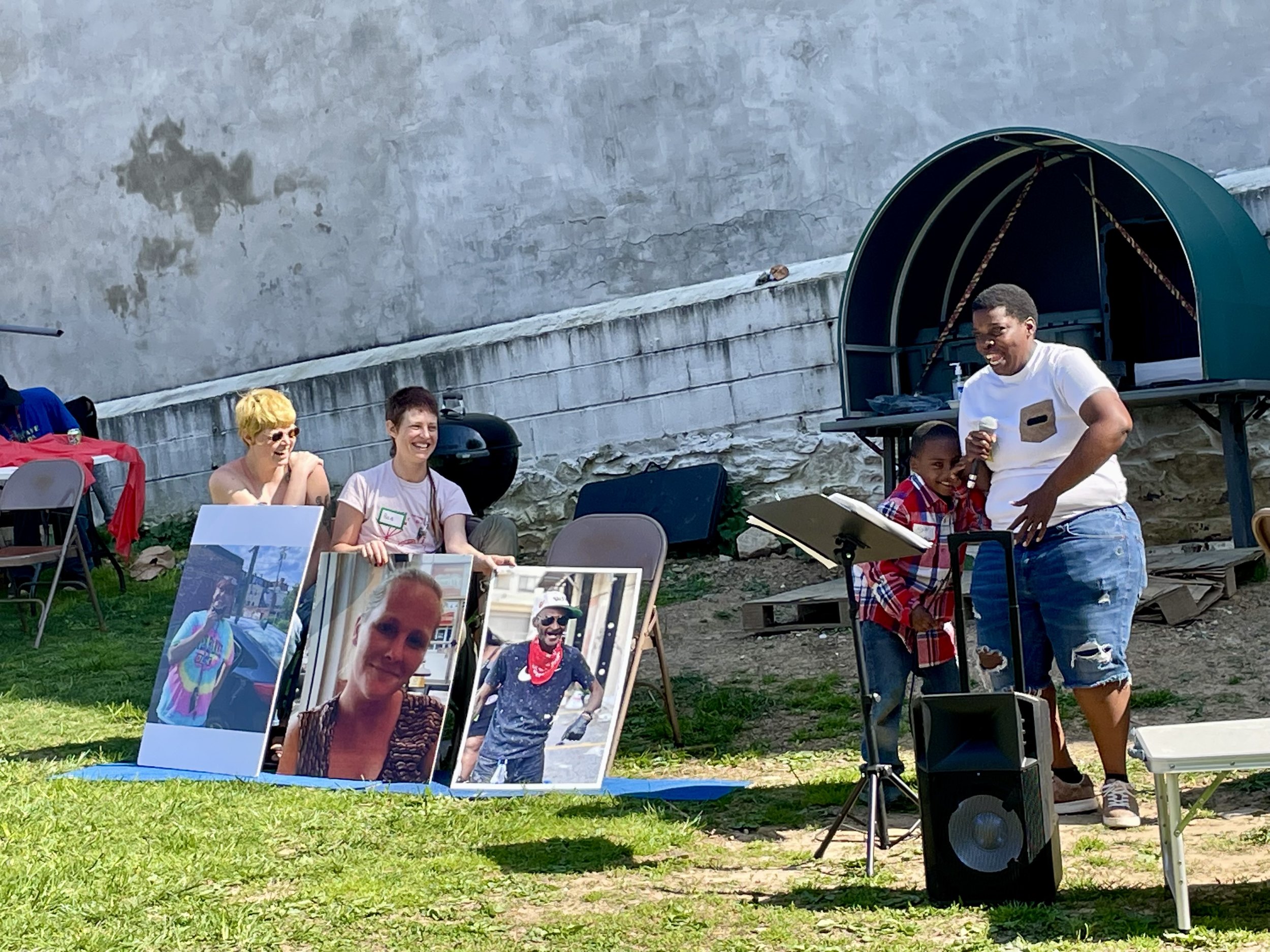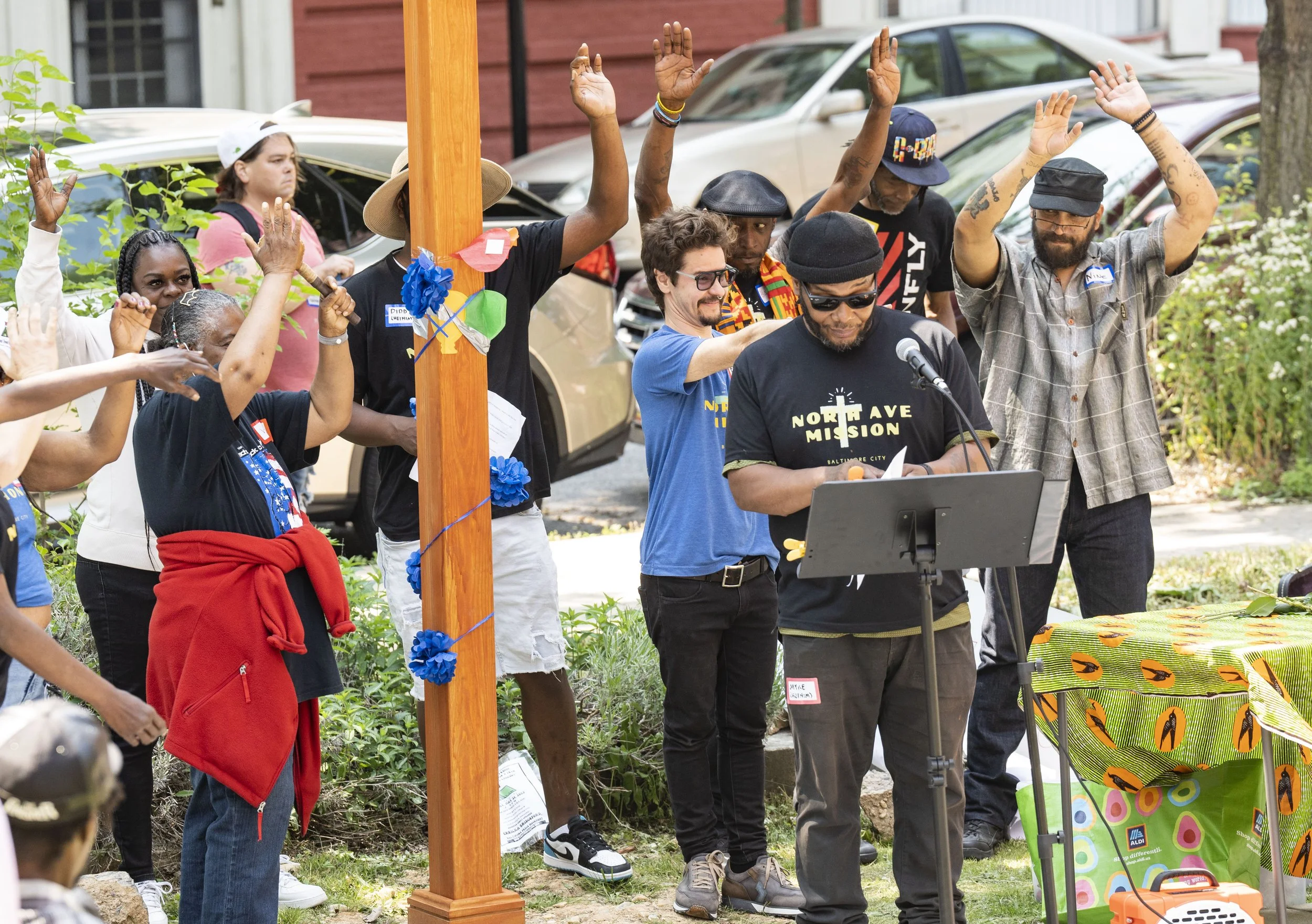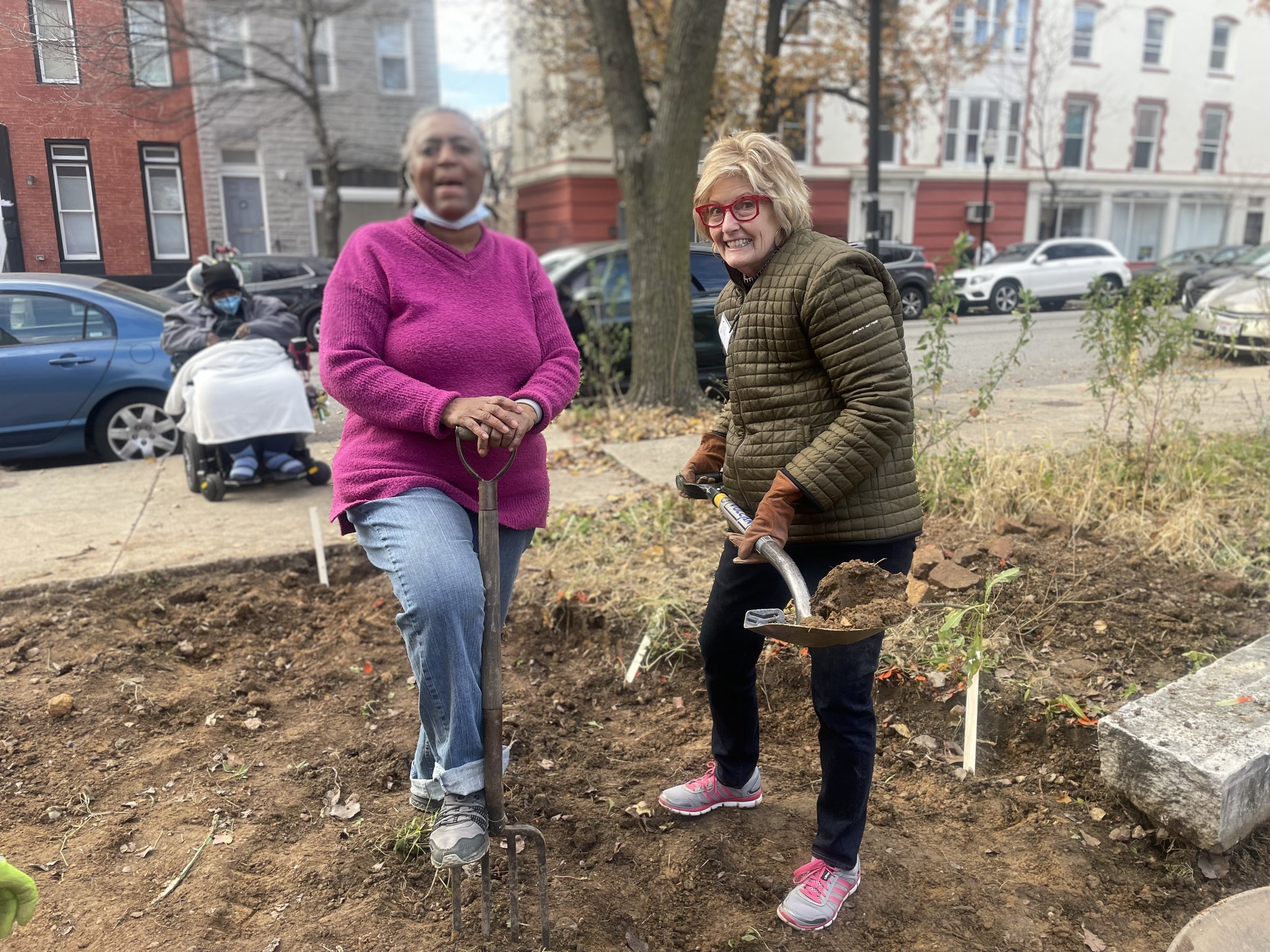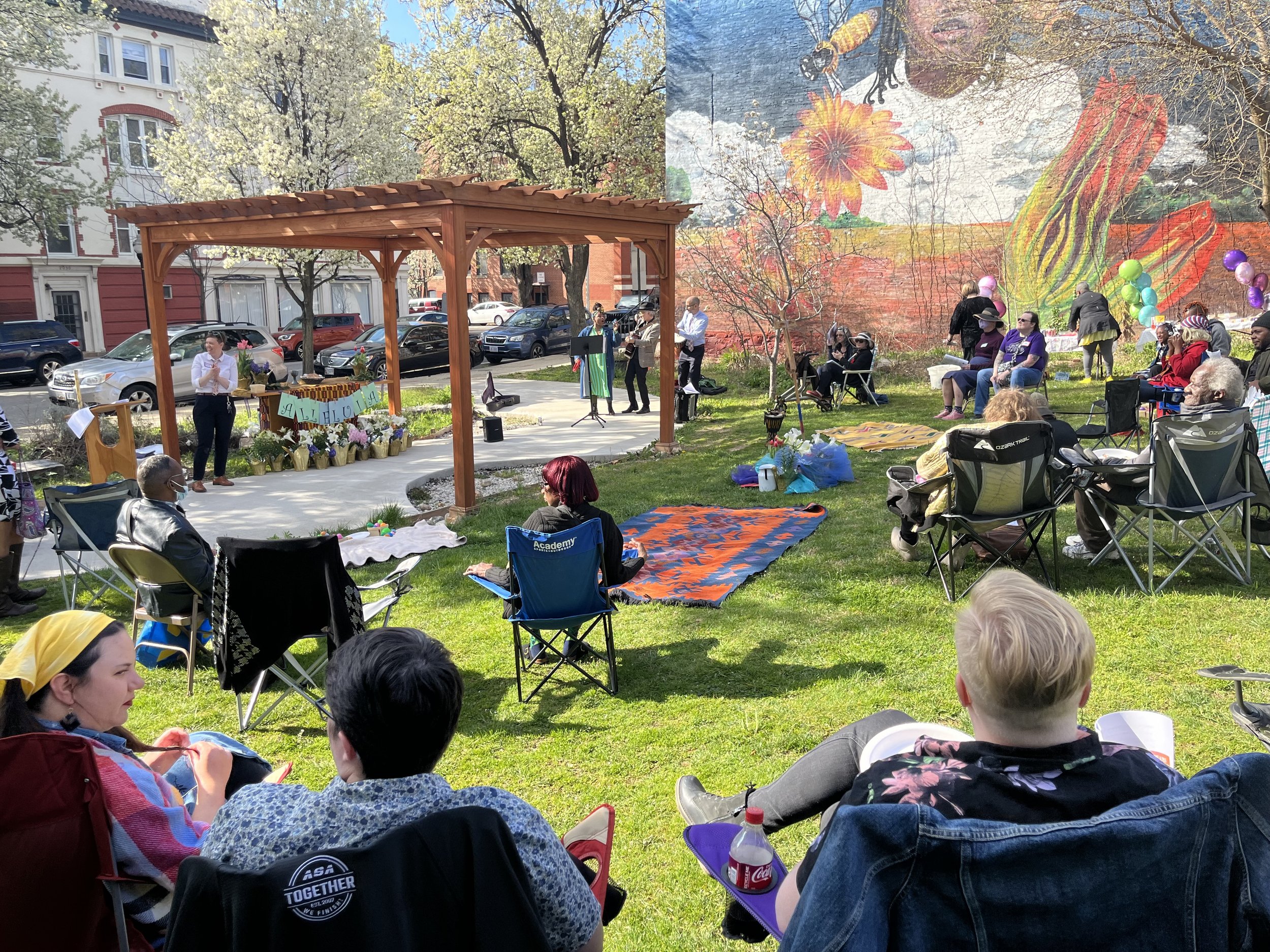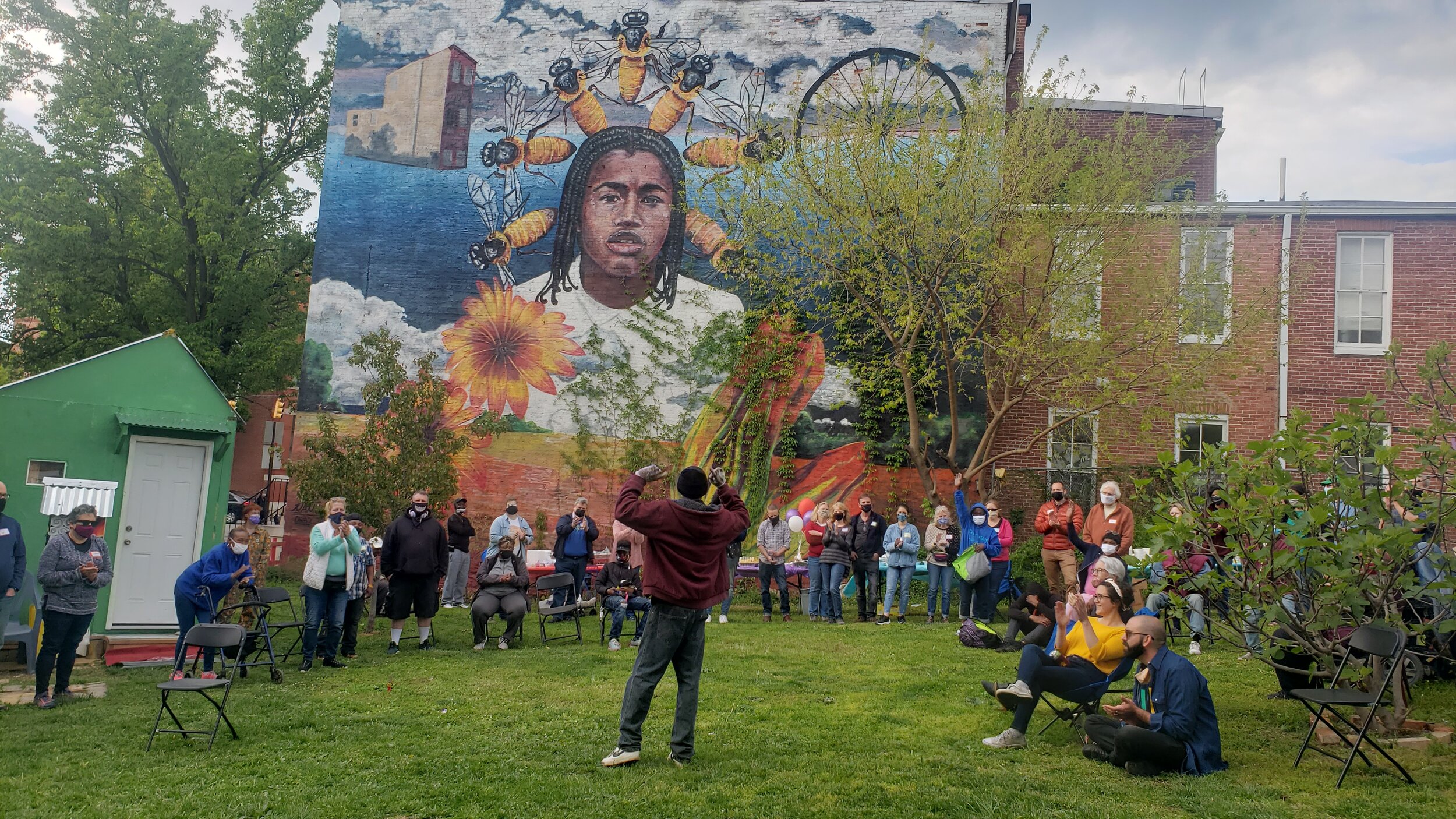
“Lately, I’ve been crying a lot of tears. But they’re happy tears. I don’t have to cry sad tears anymore.”
- Villager
Red Shed Village has been operating since April 14, 2020, and is an example of the powerful things that can happen when the leadership and vision of those most impacted by the sins of our society — structural racism, the racist war on drugs, the lack of fair housing, discrimination and stigma — are at the center.
When we began gathering in February 2020, there were three things community wanted to address: food, clothing, and shelter. Red Shed Village is an outgrowth of the dreams and the daily efforts of unhoused people and those with lived experience, supported and accompanied by friends and neighbors called to live out, and live into, “the world as it should be.”
Red Shed Village is an intentional, healing community, based on principles of harm reduction. We are grounded in hope and fed by God's grace. At Red Shed Village, three people who were unhoused find not only safer shelter, but a healing environment, space of support and dignity, community and connection to a wide network of supportive neighbors, friends, and staff, and the opportunity to exercise their gifts and grow as leaders. Red Shed Village is located in a beautiful community garden in Station North, Baltimore, called Red Shed Garden. The Village was created by Good Trouble Church members who continue to work together to support it.
Gratitude circle
At the beginning of the pandemic, our concern at Good Trouble Church was especially for our unhoused members, who did not have shelter or the ability to safely quarantine. We entered a conversation with Red Shed Garden Club, who had been stewards of the beautiful garden space known as Red Shed Garden for many years. Members of GTC presented the idea to start a small Village in this beautiful spot. After hearing concerns and answering questions, Red Shed Gardeners decided to join to help on the project. Gardeners and GTC members together canvassed immediate blocks.
Called "revolutionary for the city of Baltimore" by visiting City Councilmember Zeke Cohen, over the years since its installation, the Village has proven not only to be a stabilizing presence within the unhoused community, but has invited the nurture and deepening of relationships across socio-economic and racial divides and is seen as an enrichment to the neighborhood.
The Village has ignited a whole community around it, like the local activists and church members who provide meals to the Village and the neighbors who volunteer as Village Stewards, watching over the Village and ensuring the Red Shed Garden is a place of calm and safety.

About the Village
RED SHED VILLAGE is an example of the powerful things that can happen when the leadership and vision of those most impacted by the sins of our society — structural racism, the racist war on drugs, the lack of fair housing, discrimination and stigma — are at the center. Good Trouble Church centers the leadership and follows the visions of those on the underside of power, people whom society has all but abandoned. When Good Trouble Church began gathering in February 2020, there were three things community wanted to address: food, clothing, and shelter. Red Shed Village, like everything else at Good Trouble Church - Farm to Stoop Free Market (free groceries, clothing, warm meals), Family Life Outreach (PPE & prayer, food & friendship, resource connection & creative self-expression) - is an outgrowth of the dreams and the daily efforts of unhoused people and those with lived experience, supported and accompanied by friends and neighbors called to live out, and live into, “the world as it should be.”
A SOLUTION Red Shed Village is an innovative solution to homelessness in our city, one that involves the creative leadership of those directly impacted as well as inviting and inspiring the support, care, and multitude of skills of the neighborhood and community. It’s also a solution that is replicable in Baltimore, where we have an abundance of vacant lots and underutilized public spaces. With support from the Mayor’s Office, Red Shed Village could be a pilot program which holds much promise for the vulnerable unhoused population in Baltimore. Originally a collaboration between Red Shed Community Garden and Good Trouble Church, then expanding to include a build team partnership between St. John’s Lutheran Church in Sweet Air, Divinity Lutheran Church, Delaware Maryland Synod, YWAM Baltimore, and Good Trouble Church, and over 100 volunteers, at Red Shed Village four Villagers live in sturdy, insulated, 8 x 8 structures in intentional community. Created in response to the COVID crisis to give four people safer shelter and the ability to quarantine. There have been NO cases of COVID at Red Shed Village.
CONNECTION By being a part of Red Shed Village, the Villagers have a wide and robust network of support - neighbors, friends, and partnering organizations. The Red Shed Village provides the stability needed to access housing and other services, and similarly provides partnering organizations the ability to reach people with consistency and provide important resources such as: food, education, harm reduction, housing referrals, and mental health support. Red Shed Village emphasizes trauma-informed care and harm reduction principles. Perhaps most importantly, Red Shed Village gives Villagers the opportunity to exercise their gifts and grow as leaders as they learn to live in community, fulfill the various roles needed to keep the Village running, and discern the best ways to run the Village. Villagers are viewed not as recipients of services and resources, but with the pride of founders and co-creators, and the knowledge that what they are building at Red Shed Village will impact many in need who come after them.
Village blessing
SUCCESS Since its founding in April 2020, Red Shed Village has been a great success. A total of eighteen people have moved through the Village (four at any one time): thirteen moved to more stable housing and remain stably housed.
IMPACT The health of the surrounding neighborhood has been directly impacted in positive way by the Village. The Village has not only had no cases of COVID -19, but Villagers, Care team, and Good Trouble Church members are directly responsible for distributing 150-200 masks, sanitizers, and gloves multiple times a week in the blocks surrounding the Village – totaling thousands since COVID began. In addition, the Village distributes Naloxone to prevent drug overdose and death and keeps it stocked for everyone in the neighborhood to access. Keeping the larger unhoused community safer by supplying PPE and Naloxone friends and neighbors, and a known place of safety and connection, the Village has functioned as a stabilizing presence.
COMMUNITY The Village is viewed as an enrichment to the neighborhood by other residents. It involves the gifts and leadership of many, and in the community springing up around it, continues to foster relationships across traditional barriers of racial and socio-economic divides. Many neighbors, friends, supporters, members of nearby faith communities, and activists are involved in the Village - whether volunteering as a Village Steward to watch over the Village and ensure its safety, or cooking meals, bringing donations, or advocating. In almost every case, Villagers have been connected to the weekly Farm to Stoop Free Market and at Family Life Outreach as volunteers, and find in those times and spaces ample room to grow in a supported way, and to create deeper bonds with a strong and loving community.
INTENTIONAL RESILIENCE In Fall 2020, with news of a chilling winter on the horizon amid the trauma of COVID-19, Good Trouble Church, under the 501c3 umbrella of the Delaware-Maryland Synod, worked with partners to hold two community listening sessions ahead of multiple weekend 'build days,' to create temporary micro-shelters to replace villagers' tents for wintertime. The micro shelter tiny home village was assembled only after receiving full support at both October listening sessions, and thanks to multiple non-profit partners under a hurried small-amounts fundraising campaign, with consultation and volunteers from members of local homelessness and housing advocate groups. The Village is grateful to these experts, to neighbors and Charles North Community Association for their feedback, to advocacy groups like the recently-established Maryland Tiny House Coalition, and to the Community Law Center. In total, Good Trouble Church has gathered the community for two community meetings and three listening sessions. The overwhelming feeling has been, “We want this in our neighborhood.” Neighbors have been involved in bringing food and other donations to villagers and volunteering as Village Stewards.
PARTNERS Founded by Good Trouble Church, Red Shed Village is a creative effort and collaboration of a whole community, including many partners and orgs — Red Shed Gardeners, Delaware-Maryland Synod, St John's Lutheran Church in Sweet Air, First Lutheran Ellicott City, Abell Foundation, Divinity Lutheran Church, First Lutheran Ellicott City, Baltimore Harm Reduction Coalition, YWAM Baltimore, and every community member who has volunteered or donated or prayed for the Village.
How it works
To apply to be a part of Red Shed Village, community members visit the GTC Social Work and Support Drop-in on Tuesdays between 12-4 PM at their basement space in St. Mark’s Lutheran Church at 1900 Saint Paul St. (across the street from Red Shed Village). They have a conversation with a team member and learn about the guidelines for living at the Village. If they are likely and willing to be able to abide by those guidelines, the Village holds a vote on whether to accept the new Villager.
